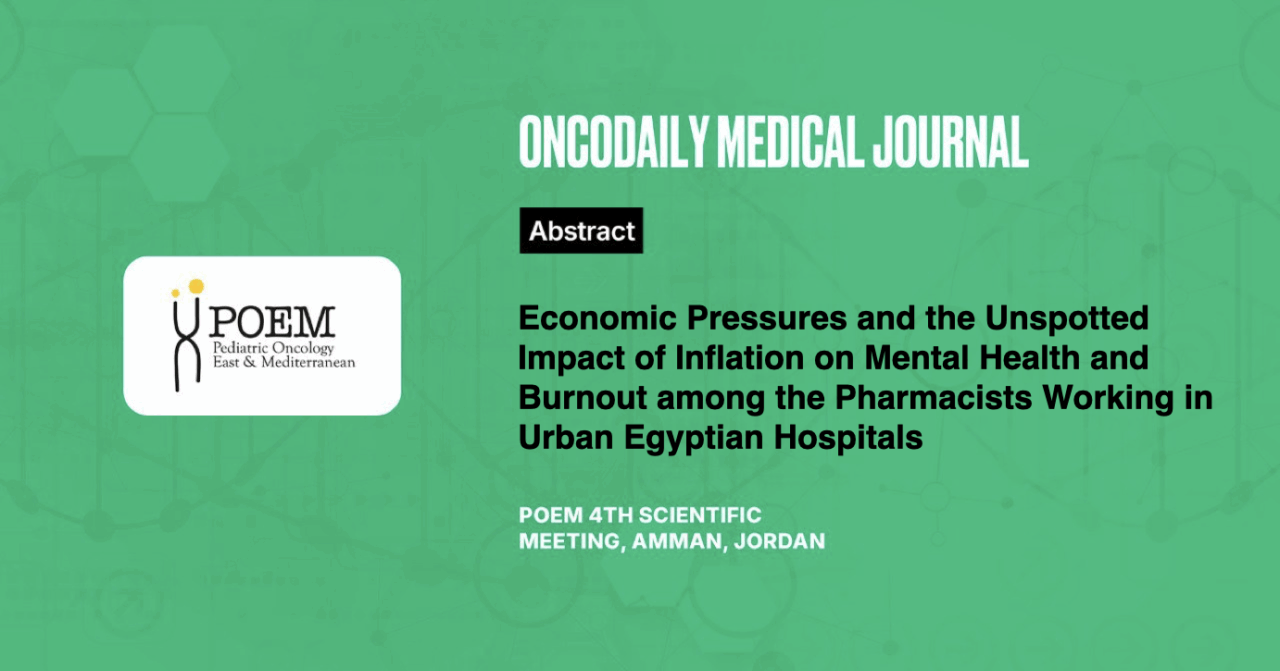Economic Pressures and the Unspotted Impact of Inflation on Mental Health and Burnout among the Pharmacists Working in Urban Egyptian Hospitals
Abstract
Introduction: Economical and inflationary conditions have taken a toll on the mental health of medical professionals in Egypt. The sharp decline of the Egyptian pound, starting from 2020, has deteriorated the living conditions of people alongside an inflation rate.
This paper aims to analyze the effects of inflation on the financial pressure on the pharmacists of the metropolitan hospitals in the government sector in order to build a financial model for them to follow.
Methodology: A sample size consisting of 111 pharmacists was used in this cross-sectional study that was descriptive in nature and catered towards pharmacists of Egyptian metropolitan government hospitals. An online survey was used to gather the required data using google form. Descriptive statistics were performed to analyze the quantitative data using excel.
Results: The data gathered revealed that 67.57% of the respondents were females. The majority were aged between the ages of 25-34. Moreover, the data also showed that over 69.37% of the participants believed that inflation had a great impact on their career trajectory while 18% of them were thinking of leaving their jobs permanently exacerbated with a heightened feeling of stress and anxiety which 56.72% reported feeling. With that being said only 29% of the participants sought professional help, with the main coping strategy being 37.84% reallocating their expenses. Coping strategies primarily included reallocating expenses 37.84% and seeking secondary employment 11.71%.
Conclusion: The current study highlights the pivotal role of inflation in increasing financial stress, mental health problems, and burnout among hospital pharmacists. These findings have important implications for targeted policy interventions to mitigate economic pressures, enhance working conditions, and ensure mental health support for healthcare professionals in resource-constrained settings.





